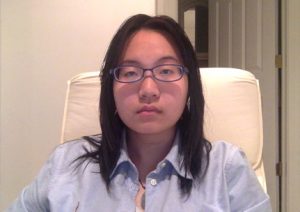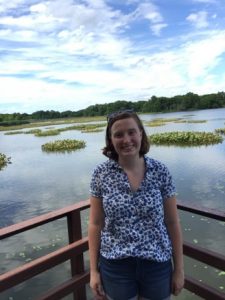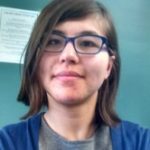Name: Xuan Huang
Class Year: 2018
Major: Computer Science
Hometown: China
Internship Placement: Computer Graphics Summer Research
Job Title: Researcher
Location: UPenn

What’s happening at your internship?
There are about 20 students and three professors here at lab, and we are divided into groups of different research projects. The main focus is VR technology, as we are in the computer animation field and that’s the ongoing hot topic.
Currently, I stay in a group of three on eye simulation. The goal is to provide realistic 3D eye region construction. The tool we are using is Autodesk Maya, and I have to learn it myself really quickly, as all other people have learned that from their major required course. Then we will do some research on how the eyes are moving statistically, and hopefully reconstruct a “typical eye” under specified situations, for example: tired, disgusted or annoyed.
Why did you apply for this internship?
It very much fits my interest in computer graphics, and animation is a subfield that I never tried and probably wouldn’t have chance to learn at Bryn Mawr (there is a huge amount of labor and data required). So I applied to see if that’s what I wish to do in graduate school.
Was there anything special about how you found this internship?
Yes, that’s quite an interesting story, just a bit long.
In the spring of my junior year, I was looking for any research opportunity in summer but only spotted few. I’m pretty much sure that I will apply for graduate school in computer graphics. While that sounds fancy as those are used in games and films, there just not that much an undergrad could do. Plus being an international student limits my choices furthermore.
So by the end of March, which is the typical deadline for REUs, I applied to three computer science research projects that do not reject international students explicitly, and none of them has anything to do with graphics.
That didn’t feel good. So I went for other ways to look for opportunities. There are two professors at Swarthmore that are teaching graphics and animation course, so I went to ask if they would took any student in summer, and soon learned that the first professor himself is not in graphics but a computer system professor, and the latter is a new professor who did not have the chance to conduct any research there yet. After our meeting, however, she mentioned that she knew there is a summer research project happening every summer at Penn and she could ask about it for me.
Then everything works out magically — the lab needs people; the subjects are ones I’m interested in; LILAC funding ensures that my identity as international students doesn’t become a problem.
What is something you have learned from your internship that you didn’t expect?
There is this other part of computer graphics that is very different from what I learned at Bryn Mawr. I have taken the graphics class here in fall, and conduct research on that since last summer. What I’d been doing is completely manageable just by myself. The programs we wrote are small (within a month) and the papers I’d been looking at are direct and specific, mostly theoretical based with a lot of math and geometry involved.
Here at Penn I realized they are doing something really different. All students here from Penn are digital media (a major under computer graphics) majors and they are dealing with much more industrial-level tasks — we are here expected to use professional modeling tools and the most up-to-date game engine. Many projects involve more than 10 people. Even in my group where there are only three, there is still a big amount of labor required in moving on — something has to be handcrafted to start with or in order for it to look good without huge computational cost. The papers we’ve been reading are more experimental based and some mainly provides statistical results. And a single (not too sophisticated in terms of ideas) project could last for years.
The field has its side (or even main stream) as heavily implementation based, and that is something I never get to know so much by myself. That will be something to think of when making later academic choices.







